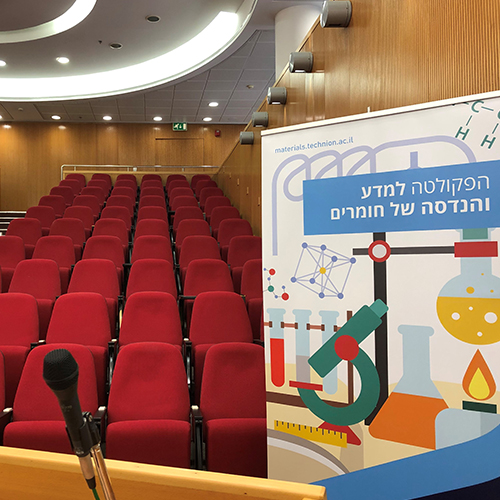
Dr. William S. Y. Wong
12/11/2025
NC E510 (China) / Zoom (Israel)
Israel - 12:30 \ GTIIT: 18:30 China time (Beijing Time)
Bubbles and foams are omnipresent across chemical, energy, and environmental processes – from mineral flotation and wastewater treatment to electrolysis and hydrogen production. Yet, their uncontrolled formation or inefficient removal can lead to severe energy penalties, product losses, and costly separation steps. My research focuses on harnessing surface engineering as an energy-passive and scalable approach to understand and control bubble and foam dynamics.
I will first discuss how superamphiphobic / superaerophilic surfaces enable chemical-free and energy-efficient defoaming. Foams are composed of closely packed bubbles. By maintaining submicron interactions with bubble films, these surfaces spontaneously trigger rapid bubble rupture and absorption, achieving passive suppression of foams. Next, I will present fundamental insights into surface-induced bubble capture. Using immersed surfaces, we reveal how nano-to-microscale topography and gas fraction govern the rupture and absorption of bubbles. These findings provide key design principles for the management of bubbles, foams, and gas flow within submerged environments.
Finally, I will share preliminary results on the design of a gas-absorbing electrolyzer that integrates 3D-printed superaerophilic surfaces. These surfaces enable rapid removal of bubbles from electrodes, thus suppressing so-termed electro-foaming. Electroanalytical measurements show several-fold enhancements in current density, while also achieving passive gas separation. This approach demonstrates the potential for a new generation of electrolyzers for water electrolysis, paving the way toward scalable and sustainable electrochemical energy storage.
Together, these advances illustrate the promise of surface engineering for enabling chemical- and energy-passive approaches toward addressing persistent challenges in industrial processes. I will conclude by briefly outlining a research program that bridges interfacial science, advanced manufacturing, and (electro)chemical engineering to deliver sustainable solutions for the 21st century.


